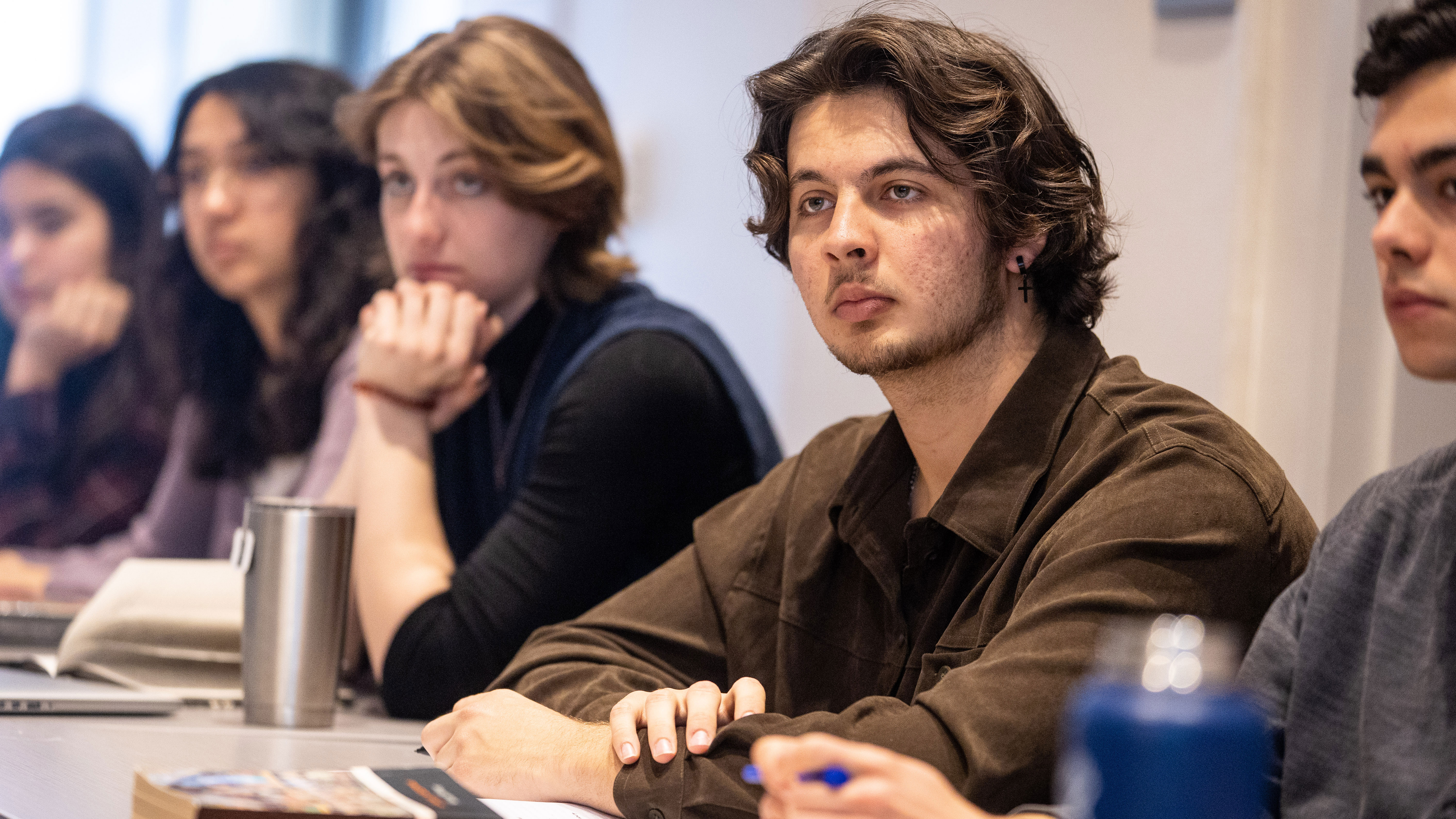About the Program
Intellectual gifts are a sacred trust to cultivate and invest in God’s work in the world.
The exclusive Augustinian Scholars Program (ASP) offers a four-year scholarship and honors curriculum to students committed to academic excellence and Christian formation. The ASP selects students to study the work of St. Augustine of Hippo and other key thinkers in the Christian intellectual tradition because a rigorous pursuit of truth grows out of our pursuit of God. Rather than a separate honors college, ASP operates within Westmont, providing support and intellectual fellowship to the scholars and enhancing their engagement with the broader community.
Westmont welcomes 60 incoming first-year students to the program each year. The highest financial award level, granted to about 30 of these scholars, covers 75% of tuition. The remaining 30 scholars receive a special award to augment the student's existing academic award.
Candidacy Criteria
To be invited as candidates for the Augustinian Scholarship, applicants must meet the following criteria:
- Apply Early Action as a first year student for the fall semester.
- Profess a commitment to the Christian faith and a desire to grow spiritually.
- Submit excellent academic credentials.
- SAT or ACT strongly recommended.
- Commit to spending a semester studying abroad.
- Take an interest in and show an aptitude for leadership; demonstrated leadership experience in high school, church and/or volunteer activities desirable.
Meet an Augustinian!
Augustinian Candidate Information
Candidates for the incoming 2024 cohort of Augustinian scholars will be selected from among all applications completed prior to the Early Action deadline. Augustinian Candidates will then be invited to participate in a candidate process that will include a campus visit during one of our candidate weekends in January and February. They will connect closely with Westmont professors, current Augustinian students and their fellow Augustinian candidates to get an in depth look of the unique nature of the Augustinian Scholars Program and the Christian Liberal Arts tradition celebrated at Westmont.
Augustinian Profile
Academic and Personal Profile of Augustinian Scholars in the Class of 2028
- Average GPA: 4.54
- Average SAT: 1382
- Average ACT: 32
- 12 States represented
- 2 Students from overseas
- 23 men and 33 women
- 28.6% students of color




